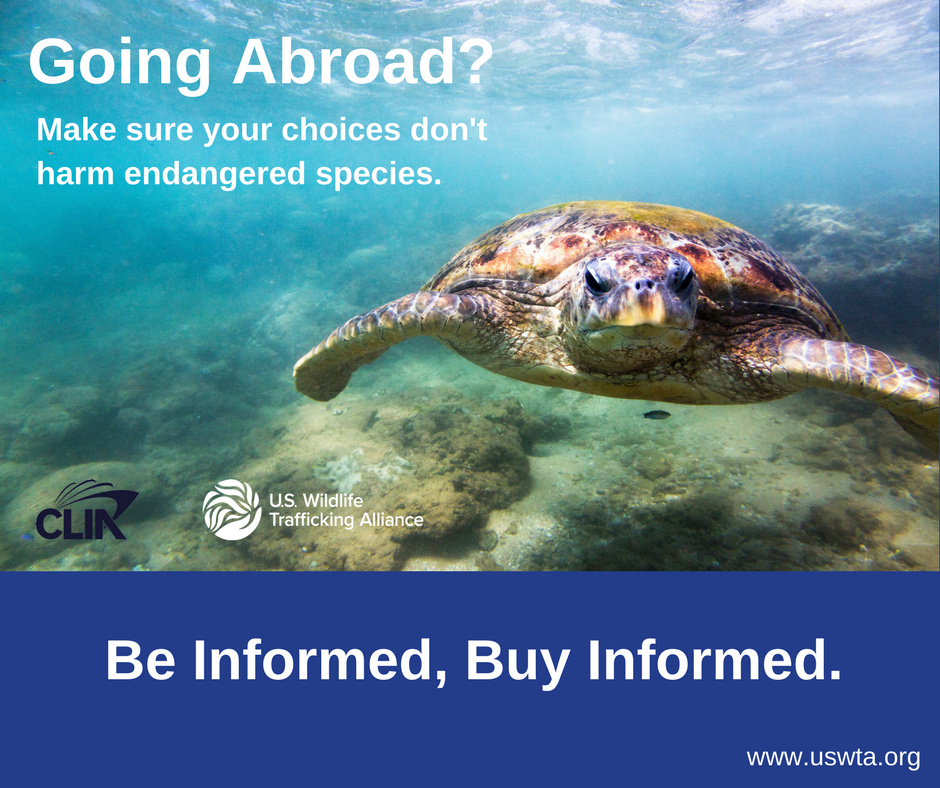Combating Wildlife Trafficking
(CLIA) is actively engaged in efforts to reduce or eliminate trade in illegal wildlife.
Wildlife Trafficking is a Global Problem
Our planet’s wildlife is disappearing at a devastating rate as poachers meet consumer demand for exotic wildlife products like ivory and sea turtle shells. Much of this trade takes place abroad, where travelers may encounter unfamiliar objects and be unaware of the applicable laws.
By educating travelers about what to watch out for, we can ensure that travelers make educated purchasing decisions and help stop the demand for these illegal animal products.
Wildlife traffickers are decimating important wildlife populations in many nations. Species are being poached in Latin America, the Caribbean, South America, Asia, and the U.S. And once the products are smuggled out of the home country, they enter an industrial-scale illegal trade that spans the globe. Wildlife experts have confirmed that if we don’t act quickly, trafficking will wipe out many endangered species in our lifetime.
Travel and Tourism Implications of Losing Wildlife
As animals disappear from the wild, the opportunity to view them decreases—creating a domino effect that is rippling across the travel and tourism industry. A new study has shown that elephant poaching alone already is costing $25 million a year in lost tourism revenues.
For the animals, this is a matter of life and death. But for many who depend on tourist revenues, it’s a matter of livelihood as well. Ensuring animals remain in the wild is not only good for the wildlife and ecosystems, but it’s also good for business.
Travel Companies are Leading the Way
CLIA has joined these efforts by partnering with two collaborative bodies committed to ending the illegal wildlife trade:
- United for Wildlife: a collaboration between seven of the largest field based international conservation organizations and The Royal Foundation of The Duke and Duchess of Cambridge and Prince Harry to combat wildlife trafficking.
- U.S. Wildlife Trafficking Alliance: a voluntary coalition of non-profit organizations, companies, foundations, and media interests that work closely with the U.S. government in a collaboration to reduce the purchase and sale of illegal wildlife products in the United States.
Cruise lines are also making commitments as well. Both Royal Caribbean Cruises, Ltd. and Carnival Corporation have made robust commitments to guide and train their employees, educate travelers through ads and printed materials, and champion creative campaigns to raise awareness of the crucial role consumers play in ending this trade.


